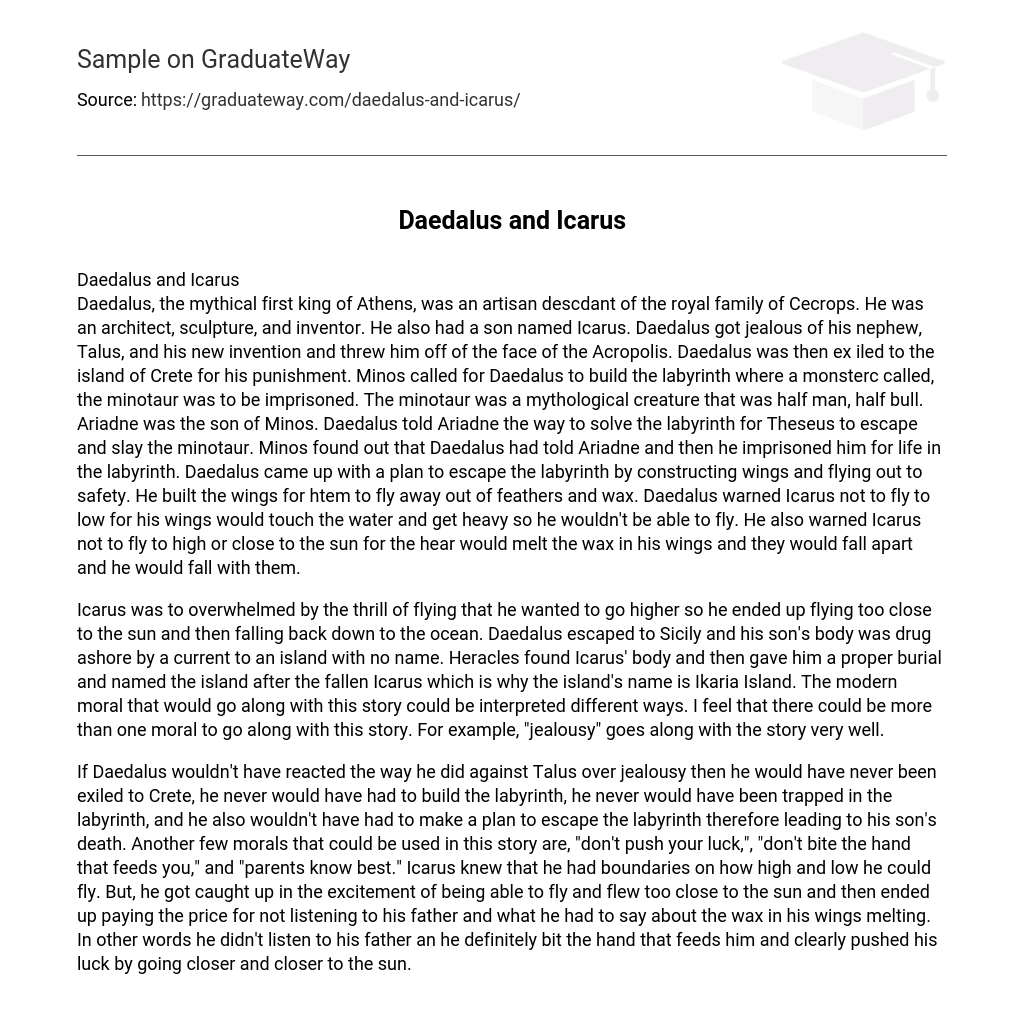Daedalus was a mythical figure who was the first king of Athens and an artisan descendant of Cecrops’ royal family. He was known for his skills in architecture, sculpture, and invention. Daedalus had a son named Icarus. However, he became jealous of his nephew Talus and threw him off the Acropolis after seeing his new invention. As punishment for this crime, Daedalus was exiled to the island of Crete.
While on Crete, Minos called upon Daedalus to build a labyrinth where he could imprison a mythological creature called the Minotaur – half man and half bull. Ariadne, Minos’ son, sought out Daedalus for help in solving the labyrinth so that Theseus could escape and slay the Minotaur.
Minos discovered that Daedalus had informed Ariadne, and as a result, he imprisoned him for life in the labyrinth. However, Daedalus devised a plan to escape the labyrinth by constructing wings made of feathers and wax. He warned his son Icarus not to fly too low since his wings would become heavy if they touched the water, making it impossible for him to fly. Additionally, he cautioned Icarus not to fly too high or close to the sun because the heat would melt the wax in his wings causing them to disintegrate and leading him to fall.
Icarus was too overwhelmed by the thrill of flying that he wanted to go higher. As a result, he ended up flying too close to the sun and falling back down into the ocean. Daedalus managed to escape to Sicily, but his son’s body was dragged ashore by a current onto an unnamed island. Heracles discovered Icarus’ body and gave him a proper burial, naming the island after him – Ikaria Island.
The modern moral of this story can be interpreted in different ways; there may be more than one moral that could go along with it. For instance, “jealousy” is one possible interpretation.
If Daedalus had not reacted jealously towards Talus, he would never have been exiled to Crete. Consequently, he would not have had to build the labyrinth and become trapped within it. He was forced to devise a plan for his escape, which ultimately led to his son’s tragic death. This story teaches several morals such as don’t push your luck,” “don’t bite the hand that feeds you,” and “parents know best.” Although Icarus knew his limitations when flying, he became too excited and flew too close to the sun. As a result of ignoring his father’s warning about the melting wax in his wings, Icarus paid a heavy price for pushing his luck and biting the hand that fed him.





